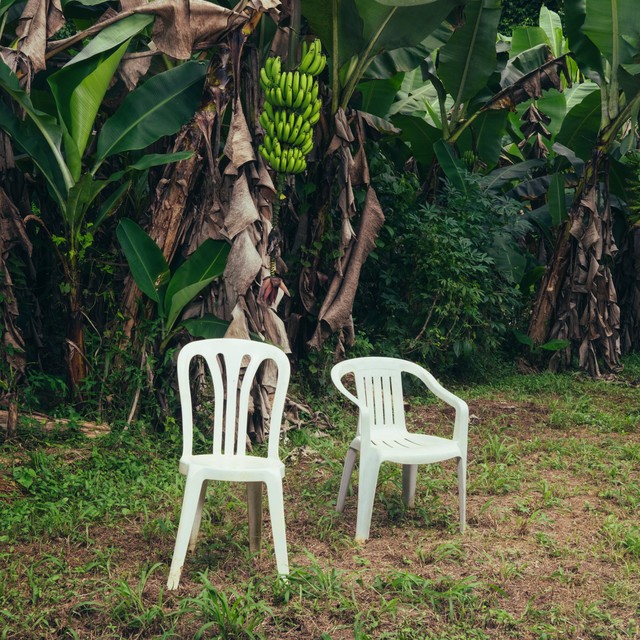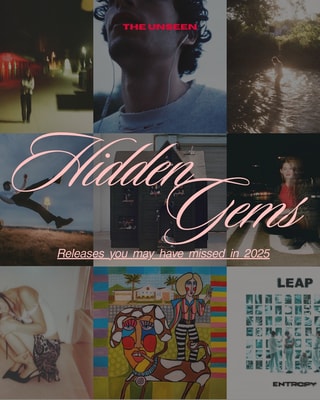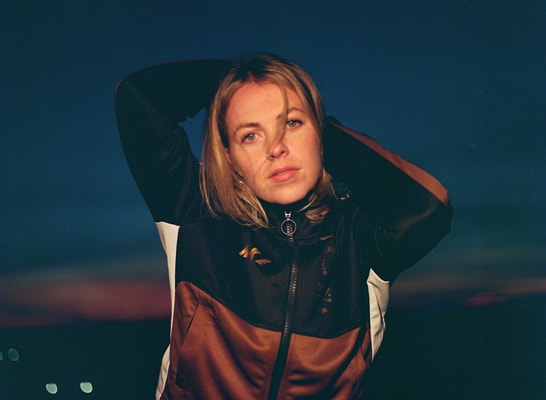Bad Bunny starts 30-night residency on the island of Puerto Rico, this is his only time he will be in the U.S. - here is why

Puerto Rican artist, Bad Bunny (Benito Antonio Martinez Ocasio), announced his world tour, following his sixth studio album, “DeBÍ TiRAR MáS FOToS,” which translates to, “I should have taken more photos.”
The dates of this tour start on the 21st of November this year, but not before his 30-night residency at the Coliseo de Puerto Rico in San Juan, titled “No Me Quiero Ir De Aquí” (I Don’t Want to Leave From Here), which started on the 11th of July.
It consists of 30 concerts “that fans say are meant to galvanize Puerto Rico’s unique sense of pride and resilience against the backdrop of economic uncertainty, gentrification, and the long-lasting impact of colonialism,” according to CNN.
These shows on the island are the only Bad Bunny concerts that will take place in the U.S. throughout this tour. This says a lot about the thought and detail he put into every step of his tour, as starting with this residency in Puerto Rico is a direct call to Puerto Ricans themselves.
It is a call of resilience and pride. Since the island is considered a U.S. territory and not a state, there are many disadvantages that the government imposes on the island and its people.
People living on the island do not have the ability to vote, though they are U.S. citizens. The island has one representative in Congress, who also has limited voting abilities. And as of late, many of the people on the island have been feeling the heat of gentrification, which Benito often refers to in his album.
This reference is primarily communicated through the song titled “Lo Que Le Pasó a Hawaii” (What Happened to Hawaii). The chorus starts with:
Thеy want to take my river and my beach too / They want my neighborhood and grandma to leave / No, don't let go of the flag nor forget the lelolai / 'Cause I don't want them to do to you what happened to Hawaii.
This is in regard to the loss of Hawaii’s individuality through the gentrification and displacement that the island and its people have suffered. It wasn’t until 1959 that Hawaii would become the 50th state, due to the U.S. overthrowing the island's monarchy.
ABC News explained [referring to “Lo Que Le Pasó a Hawaii”], “The song taps into concern that the Puerto Rican identity is eroding amid an influx of people from the U.S. mainland, many of them attracted by a 2012 law that allows Americans to move to the island and pay no taxes on capital gains if they meet certain conditions.”
History now repeats, as Puerto Rico finds itself in a similar and tragic position, with rising property taxes and appalling economic hardships that the families on the island are faced with.
This, however, does not stop Benito and other Boricuas, whether they are on the island or not, from embracing and wearing Puerto Rican culture with honor.
Concerning his first 3-hour concert in Puerto Rico, Billboard shares, “With a set that featured lush green hills and intricate cultural motifs, the visuals matched the depth of his message: Puerto Rican culture was front and center — not for explanation but for celebration.”
Bad Bunny deliberately leaving out the U.S. mainland on his tour is giving his fans the chance to explore the culture and heritage that he comes from and bases his music around. The native Afro-Caribbean genres in Puerto Rico are bomba and plena, which are the basic roots of Bad Bunny’s music, especially in DTmF.
The Afro-Caribbean rhythms were created over 400 years ago by enslaved Africans as a way to share messages and secrets through music.
Benito’s music gives a message to America, calling out recent political changes, as multiple policies that have started to be enforced allow the mass deportation of countless immigrants. The pop and rap artist himself has opposed, through his Instagram stories, the actions of Immigration and Customs Enforcement (ICE), and their unlawful antics, as they’ve raided areas of work and homes to detain citizens.
On the 4th of July, Bad Bunny released the music video for “NUEVAYoL,” a form of slang Puerto Ricans came up with when referring to New York.
This music video is another implication towards American politics, as well as towards President Trump. Visuals of Benito and the Puerto Rican flag on top of Lady Liberty are shown, one thing is made clear: Hispanic individuals and immigrants are here to stay.
It says Latin and Native culture are just as responsible for building the fabric of the United States as anyone else. It reaches out to the Boricuas living in New York City, living within the U.S.’s borders, giving them a sense of independence in this troubling time.
In the video, a voice comes through a radio, similar to President Trump, and says, “I made a mistake. I want to apologize to the immigrants in America. I mean the United States. I know America is the whole continent. I want to say that this country is nothing without the immigrants. This country is nothing without Mexicans, Dominicans, Puerto Ricans, Colombians, Venezuelans, Cubans–”
The radio is turned off by the men surrounding it, they walk away from the table.
Not only is this video released during a time of high tensions on the streets of American neighborhoods with citizens being unlawfully detained and racially profiled, but important events took place within the country’s government only a day prior, as the President had passed his “Big Beautiful Bill,” which gives powers to ICE agents and funds for detention centers.
As about 300,000 to 600,000 people are about to temporarily influx the population of Puerto Rico during Bad Bunny’s residency, this cultural hotspot of an island will experience an uplift in the local economy, giving opportunities to locals seeking jobs and small businesses.
The beauty and history of Puerto Rico have a chance to be spotlighted, after many years of being given the cold shoulder.
These concerts are waves of hope for the locals and natives living on the island. Popular celebrities, such as basketball stars LeBron James and Draymond Green, have joined Benito on stage during the first few concerts in support of his residency.
Puerto Rican heritage and culture are being revived and shared with the world, as concert-goers are sporting island hats and skirts, known as pava and falda de bomba.
Ivy League universities like Yale and Princeton have released courses to study Puerto Rican culture and Benito’s music, since it has resonated with individuals and families alike from all over the U.S.
Despite the hardships that the island and its people have faced, Puerto Ricans have persisted and stood strong against natural disasters, gentrification, blackouts, and severe neglect. With unequal support from the government, Puerto Ricans are there to uplift themselves when no one else is.
All individuals in the United States have rights, regardless of immigration status.
The following websites and documents can help you protect yourself and your family and defend your rights:
https://www.nilc.org/resources/know-your-rights-what-to-do-if-arrested-detained-immigration/
https://immigrantjustice.org/for-immigrants/know-your-rights/ice-encounter/
https://drive.google.com/file/d/1LuHA-QwO7Mi3zBVfv_2D2qJoffoogdIE/view
WRITTEN BY

Eliza
My name is Eliza, but most people call me Eli. I love to write anything that interests me, from journalism and short stories to poems and screenwriting. I also love photography and the arts, like zines, painting, drawing, jewelry-making, as well as adventures like concerts, road trips, and late-night drives.



